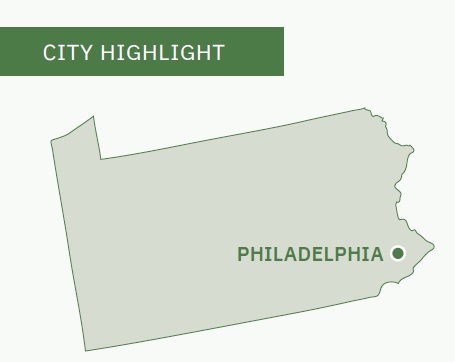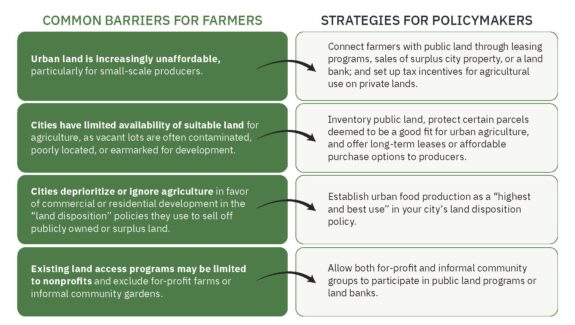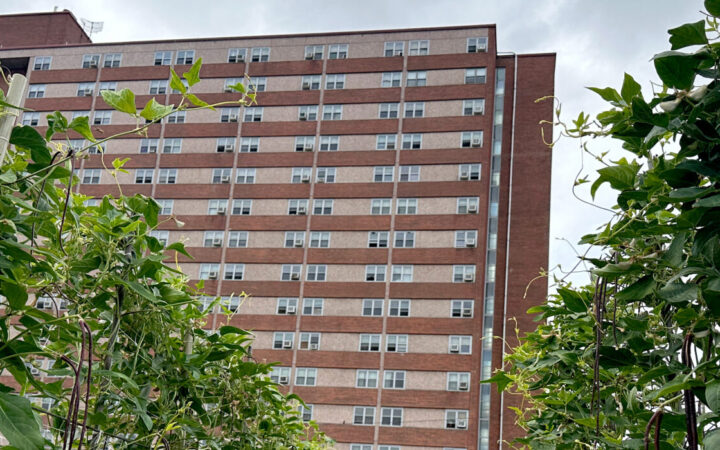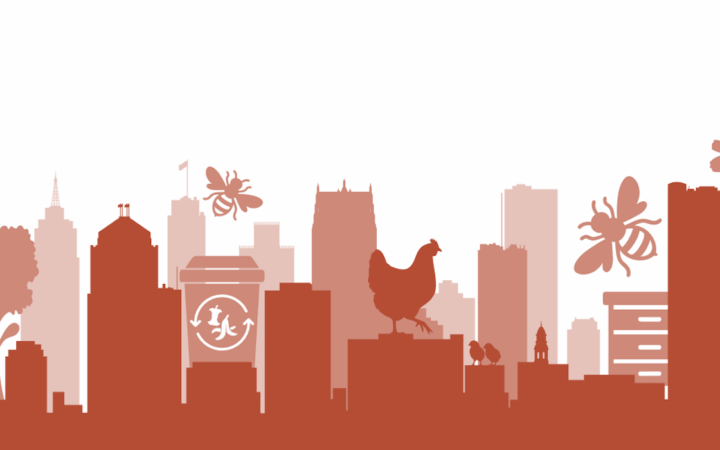This fact sheet distills the information in the Land Access section of “Urban Agriculture and Innovative Production: A Guide to Local Policy” into key takeaways for producers and policymakers.
Local Policy Barriers and Strategies for Urban Agriculture
Growing food in cities requires the space to do so. Urban producers have long demonstrated creativity in identifying and cultivating unconventional farm sites—vacant lots, rooftops, warehouses, and schoolyards among them. Despite their flexibility and innovation, farmers and gardeners still face significant challenges accessing land in cities. By recognizing the value of urban agriculture, policymakers can help connect producers to the space they need to grow food.
What Is Land Access?
Land access refers to the ability of individuals, groups, or organizations to obtain and use land for a specific purpose—like growing food in cities
What Is Land Tenure?
Land tenure refers to the security of legal control someone has over land—whether through ownership, a lease, or another formal agreement.
How Are They Connected?
Meaningful access requires land tenure. Even if a farmer has permission to use a certain parcel of land, they may lose their access rights without a deed, lease, or other legal protection.
Why Land Tenure Matters for Urban Farmers
In cities, particularly in gentrifying areas, urban farms are vulnerable to displacement due to rising land prices and development. Without secure tenure, producers can lose their land—and any investments in their farm and business, like irrigation infrastructure or soil fertility they have carefully built up over time.
Philadelphia’s Adverse Possession Reform
 In 2024, Pennsylvania reformed its adverse possession law to support gardens in Philadelphia. Adverse possession is a legal process that allows someone to claim ownership of private land they have openly and continuously used without permission for a certain number of years. The reform reduced that required period from 21 to 10 years specifically for gardens. This change helps urban farmers and gardeners secure legal title to long-tended vacant lots and protects them from the pressures of redevelopment.
In 2024, Pennsylvania reformed its adverse possession law to support gardens in Philadelphia. Adverse possession is a legal process that allows someone to claim ownership of private land they have openly and continuously used without permission for a certain number of years. The reform reduced that required period from 21 to 10 years specifically for gardens. This change helps urban farmers and gardeners secure legal title to long-tended vacant lots and protects them from the pressures of redevelopment.
Land Access Barriers and Policy Strategies
While the laws, markets, and politics of any one city might present unique challenges, urban producers across the country face common barriers accessing suitable land. By recognizing these obstacles, municipalities can develop policies that help producers overcome them.
Below are some common land access challenges for urban farmers, along with policy strategies for policymakers to better connect farmers to urban farm spaces.

Best Practices for Farmers to Access Land
▶ Explore public land opportunities. Contact your local government to find out if public land is available for lease or purchase for agricultural use. Some cities have land banks or make land available through departments like parks, transit, or public utilities.
▶ Look into incentives for private landowners. Research local or state programs that offer tax incentives or other benefits to private landowners who lease or sell land for farming or gardening purposes.
Suggested Citation
Ctr. for Agric. & Food Sys., Land Access: Local Policy Barriers and Strategies for Urban Agriculture (2025), https://cafs.vermontlaw.edu/resource-library/land-access.



